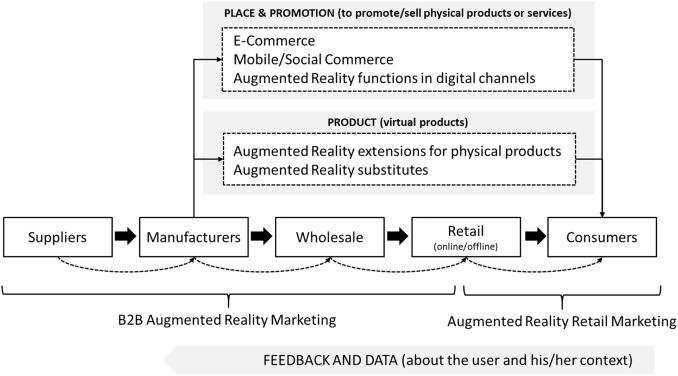Future-Proof Careers: How Schools Are Preparing Students for the Jobs of Tomorrow
In today’s rapidly changing world, the job market is evolving faster than ever before. as automation, artificial intelligence, and digital technology reshape industries, today’s students are facing a future full of opportunities—but also uncertainties. That’s why the concept of future-proof careers has become a major focus in education.Schools across the globe are reimagining learning, integrating specialized programs and practical skills training to ensure students are well-prepared for the jobs of tomorrow. In this article, we’ll explore how schools are adapting, share real-world case studies, and offer actionable tips for parents, educators, and students alike.
Understanding Future-Proof Careers
A future-proof career is one that’s resilient in the face of technology-driven change. These jobs require adaptable skills and continuous learning,making it easier for professionals to thrive as industries evolve. As automation and AI take over repetitive tasks, tomorrow’s careers will emphasize problem-solving, creativity, emotional intelligence, and digital literacy.
- Critical thinking and adaptability
- Technological Literacy (i.e., coding, data analysis, AI)
- Collaboration and cross-cultural communication
- Lifelong learning and personal growth
How schools Are Preparing Students for the Jobs of Tomorrow
Educational institutions are at the forefront of this transformation, preparing students not just for their first job, but for a lifetime of career shifts. Here are some innovative ways schools are readying students for future-proof careers:
1. Integrating STEM and STEAM Education
STEM—science, technology, engineering, and math—skills are in high demand. More schools are now adding the “A” for arts, turning STEM into STEAM, to promote creativity and innovation alongside tech-savvy learning. Project-based lessons, coding bootcamps, and robotics clubs are just some examples of how future-ready curricula are built.
2. Teaching Digital and Media Literacy
From coding fundamentals to understanding algorithmic bias, digital literacy has become essential. Schools integrate online safety, responsible media consumption, and hands-on tech labs to ensure students can navigate a connected future.
3. Emphasizing Soft Skills and Emotional Intelligence
While technical skills are vital,prosperous careers of the future also depend on emotional intelligence,creativity,adaptive thinking,and leadership. Group collaboration projects, debate teams, and mindfulness training foster these critical abilities.
4. Personalized and Project-Based Learning
Future-proofing education means shifting away from rote memorization. Personalized learning paths leverage technology, adaptive software, and individualized feedback to match students’ skills and interests with real-world challenges. Project-based learning immerses students in solving authentic problems via teamwork and research.
5. Building Entrepreneurial Mindsets
Schools are introducing innovation labs,business competitions,and startup incubators that encourage students to take risks,solve problems creatively,and learn from setbacks. These programs cultivate resilience and initiative—traits valued in the future workforce.
Benefits of Preparing Students for Future-Proof Careers
- Career Flexibility: Students gain transferable skills that open doors across industries and job roles.
- Resilience to Change: Future-ready students are less likely to be disrupted by job market shifts.
- Increased Confidence: Hands-on projects and real-world internships instill self-belief and leadership qualities.
- Contribution to Innovation: Future-proof curricula empower students to shape and drive technological advancements.
Case Studies: schools Embracing Future-Ready Learning
Case Study 1: Singapore’s “SkillsFuture” Initiative
Singapore’s ministry of Education launched the “skillsfuture” program, focusing on industry partnerships, continuous learning, and practical training.Its holistic approach helps students align studies with in-demand skills and lifelong employability.
Case Study 2: Finland’s Phenomenon-Based Learning
Finland’s education reform introduces students to interdisciplinary projects. For instance, students might explore climate change by integrating science, history, technology, and communication skills—a model proven to boost engagement and real-world application.
Case Study 3: STEM Magnet Schools in the US
Many US school districts, such as those in North Carolina and California, offer STEM magnet programs with robotics labs, hands-on science experiences, and partnerships with local tech companies. Students graduate with industry certifications and project portfolios.
First-Hand Experience: Voices from the Future Workforce
“Our coding bootcamp didn’t just teach Python—it taught me how to solve problems in teams, present my ideas, and keep learning new skills.”
– Maya T., High school Senior, California
“the entrepreneurship program gave me the confidence to launch my own app, and now I’m thinking about starting a company after I graduate.”
– Diego F., College Student, Texas
Practical Tips for Future-Proofing Education
- For Educators:
- Incorporate real industry projects and modern technologies into your curriculum.
- Foster a culture of inquiry and experimentation, rather than standardized rote learning.
- Encourage cross-disciplinary collaboration among students.
- For Parents:
- Engage kids in summer camps for coding, robotics, or creative arts.
- Support curiosity—visit science centers, subscribe to technology magazines, or encourage maker hobbies at home.
- Advocate for future-focused programs at your child’s school or local school board.
- For Students:
- Explore internships, volunteer opportunities, and digital learning platforms to gain practical skills.
- Embrace continuous learning—online courses and certifications can add new skills outside traditional classrooms.
- Develop a digital portfolio showcasing projects, achievements, and skills.
Future-Proof Career Paths Worth Watching
Many of the fastest-growing and most resilient career paths incorporate technology, creativity, and social impact. According to the World Economic Forum, some future-proof jobs include:
- Data Analysts & Scientists
- AI & Machine Learning Specialists
- Cybersecurity Experts
- Healthcare Professionals leveraging digital tools
- Renewable energy Technicians
- UX/UI Designers
- Entrepreneurs and Start-up Founders
- Teachers and Trainers for digital skills
no matter the role, the ability to adapt and keep learning will be the ultimate advantage.
Conclusion: The Future Starts in Today’s Classrooms
As we prepare the next generation for an unpredictable yet exciting future, schools play a crucial role in empowering students to build future-proof careers. Through innovative curricula, practical experiences, and nurturing vital soft and hard skills, education transforms students into resilient, adaptive professionals ready to excel in the jobs of tomorrow.
The journey toward a future-proof workforce is collaborative—schools, families, and communities must work together to cultivate curiosity, creativity, and grit. By taking advantage of new learning opportunities today, we ensure that our leaders of tomorrow are well-equipped to tackle whatever the future holds.

